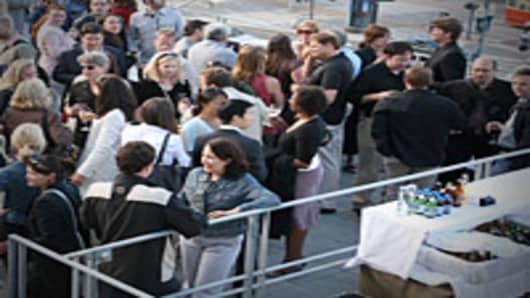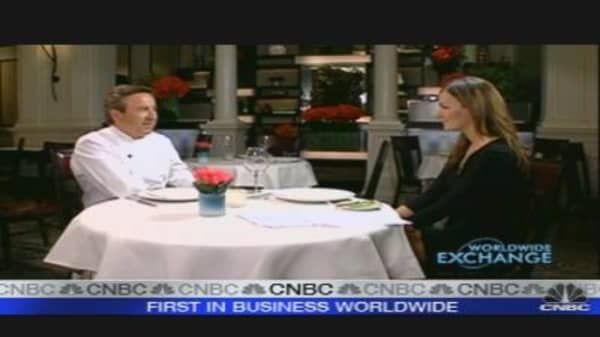Their reports are boiled down into one, two and three star ratings and then published in the new edition of the guide every June. It's not uncommon for restaurants like Daniel to be upgraded over time; or, like New York's Adour and Del Posto in recent years, to be demoted.
The guide is touted as the most discerning and accurate of all restaurant guides because of its anonymous inspection and uniform standards.
"A three star in America is compatible with a three star in France, Japan, or Italy — which is really the best of the best," Boulud said.
His customers regularly ask him for recommendations of restaurants to visit while they're abroad based on the star ratings. "Many of my customers ask me where I can go in Paris and get a really good one star meal, and that's the purpose of Michelin."
Expanding Abroad
Boulud has since expanded globally, opening his first restaurant in Beijing three years ago. He said that the experience has been different there than in New York, where he self-finances new projects.
"If I want someone to finance my restaurants and want to be profitable from day one, I have to go out of town," he said. Boulud plans to add restaurants soon in Palm Beach, Miami, Vancouver and Singapore.
Oversaturation is always a concern, so Boulud and his 1,000 employees grow and expand at their own pace.
"You keep picking and moving and opening at a pace you can afford to do," he said, and, that way, "you do not really dilute your brand or your control. And as you continue to expand and continue to keep your brand airtight — where are you looking to for further expansion? Is there any cuisine you'd like to get into?"
Boulud's next moves in New York include a food store and a Mediterranean grill. "I want to get away from pork and butter and make a very different restaurant so people feel like it's new and different," he said.
Dining traffic should stabilize in the third quarter and start to recover in the final three months of the year — according to market research firm The NPD Group — which is good news for restaurateurs like Boulud with plans for expansion.
Whether it's for his fine-dining ventures or casual chains, Boulud will still keep an eye on the Michelin star ratings. At the end of the day, "they don't give it because they like you, they give it because they like your food."





